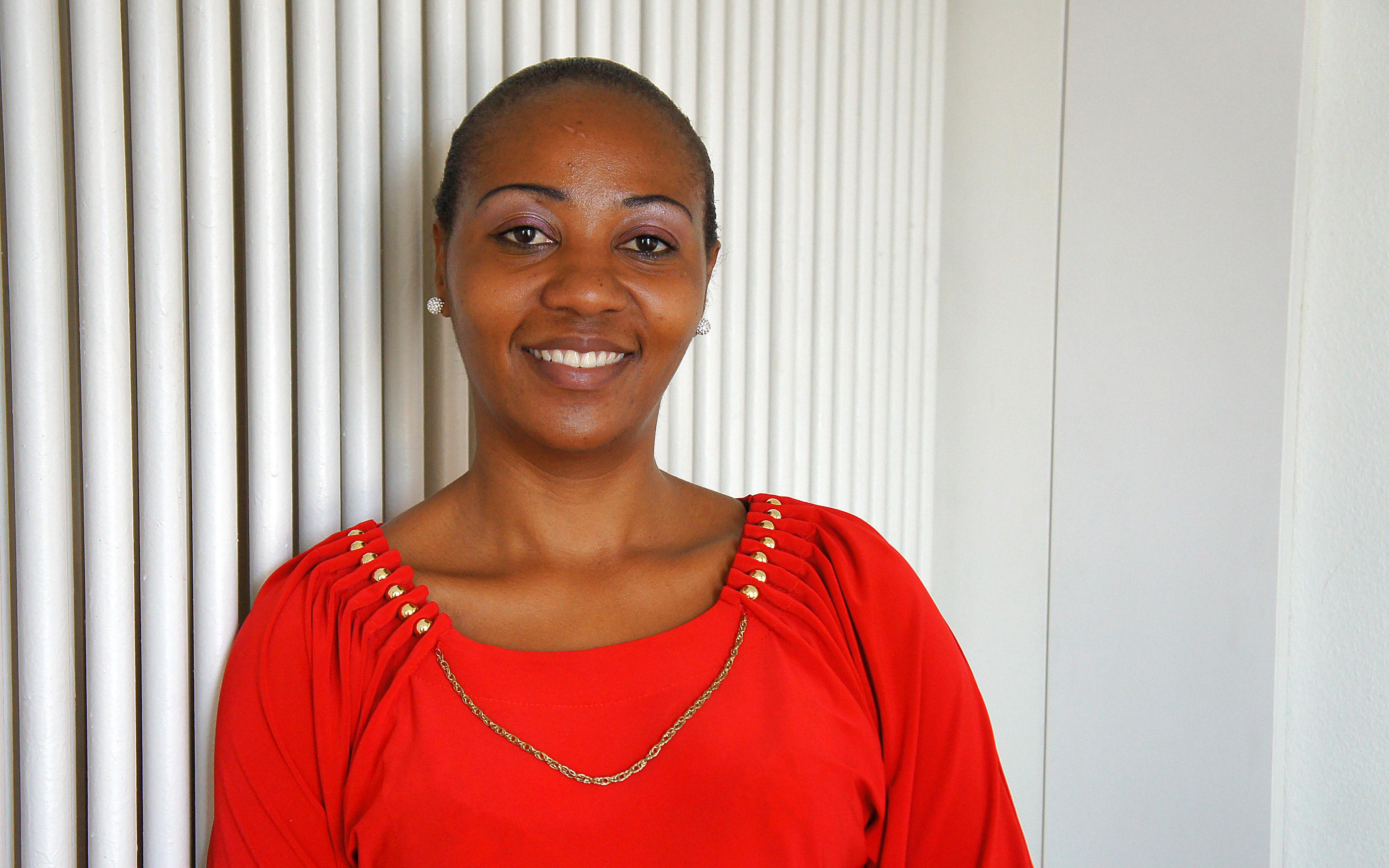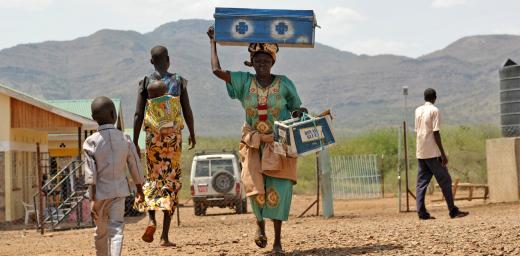Daring to Talk about a Taboo Subject for Women in DRC

Ms Mireille Ntambuka. Photo: LWF/P. Mumia
LWF Supports Congolese Church Contribution to NGO Shadow Report
(LWI) Growing support from churches towards initiatives addressing sexual and gender-based violence in the Democratic Republic of Congo (DRC) is heightening awareness about “a taboo subject that continues to weigh down heavily on thousands of women” caught in the long-standing conflict in the country.
Ms Atty Mireille Ntambuka, coordinator of the RAFEJE women lawyers’ network in eastern DRC, made these observations when she reflected on her participation in the 55th Session of the Convention on the Elimination of All Forms of Discrimination against Women (CEDAW), held, 8 – 26 July in Geneva. The Lutheran World Federation (LWF) supported RAFEJE’s contribution to Congolese civil society shadow reports during the DRC government 2013 periodic report to the CEDAW Committee that reviews signatory states’ implementation of the international bill of women’s rights.
“Gender-based sexual violence is a reality that many ordinary women especially in Northern Kivu province are compelled to downplay in their struggle to survive, as different armed groups sporadically attack villages and drive families out of their homes in the fight for political dominance and control of minerals and other resources in this country,” Ntambuka told Lutheran World Information
RAFEJE works with community-based groups including the Evangelical Lutheran Church of Congo (EELCo) to raise awareness among women and men about safeguarding women’s rights. It is making an impact, although more needs to be done.
“When we convince a pastor about the need to stop SBGV [sexual and gender-based violence] in our current context, we have seen that the message goes beyond one group; they sensitize fellow pastors, women and youth groups. And slowly more people are beginning to talk openly about rape, more women and girls know where to report such cases, and the community is becoming supportive instead of rejecting victims of such violence,” Ntambuka explained.
Rev. Solange Yumba Wa Nkulu, national coordinator of EELCo women’s network was one of the participants in a workshop in Goma organized by RAFEJE and Finn Church Aid to raise awareness about the United Nations convention and gather content for shadow reports to the CEDAW committee. The workshop was supported by the LWF through its Women in Church and Society (WICAS) desk and the Department for World Service country program in DRC.
Impunity for Perpetrators
The civil conflict that broke out in DRC in 1998 has cost more than 5 million lives, and led to an increasing number of SBGV cases, with an estimated 1 million women subjected to rape especially in the North and South Kivu provinces.
In its report to the CEDAW committee, RAFEJE noted that impunity for sexual offenses remains a major impediment to the struggle against SBGV. The group stated that out of the 8,000 reported cases of rape in Northern Kivu between 2010 and 2011, only 960 (12 percent) had resulted in accused perpetrators being prosecuted.
“The spotlight should be put not only on the armed groups perpetrating rape, but also on generalized impunity within families, whereby solutions such as marrying the perpetrator are considered as punishment,” Ntambuka emphasized.
On the government’s implementation on the 2006 law on equality, the shadow report decried the poor women’s representation in leadership. Women, RAFEJE noted, represent 10 percent in governmental positions, eight percent at the parliament and five percent at senate level.
The report also challenged the government to allocate the necessary budget to the Ministry of Gender, Family and Children to respond to the overwhelming needs and enhance women’s awareness about their constitutional rights and participation at regional institutions both at the public and private level.
RAFEJE and the CEDAW committee opposed the assertion by DRC Gender Minister Wivine Mumba Matipa that the government had made efforts to reform the family code to enhance women’s rights. Women and girls remain victims of a patriarchal society, with customary law severely limiting their access to land, credit and work opportunities. They still face the challenge of being the poorest among the poor, with levels of education and literacy largely inferior to those of men and boys, the committee noted.
Empowering Women and Girls
“Participating in the CEDAW committee has been a learning experience in working together and it motivates WICAS to continue working with other LWF partners to support EELCo to empower women and girls in dealing with the gender challenges in the DRC context,” reflected Maria Cristina Rendon, WICAS interim assistant
Wa Nkulu said her participation in the CEDAW preparation workshop was “an eye opener that will allow me to integrate in a more comprehensive way the gender justice perspective in EELCo’s ministry.”
The DWS country programs in Uganda and DRC continue to provide humanitarian assistance to Congolese displaced by the ongoing conflict.





